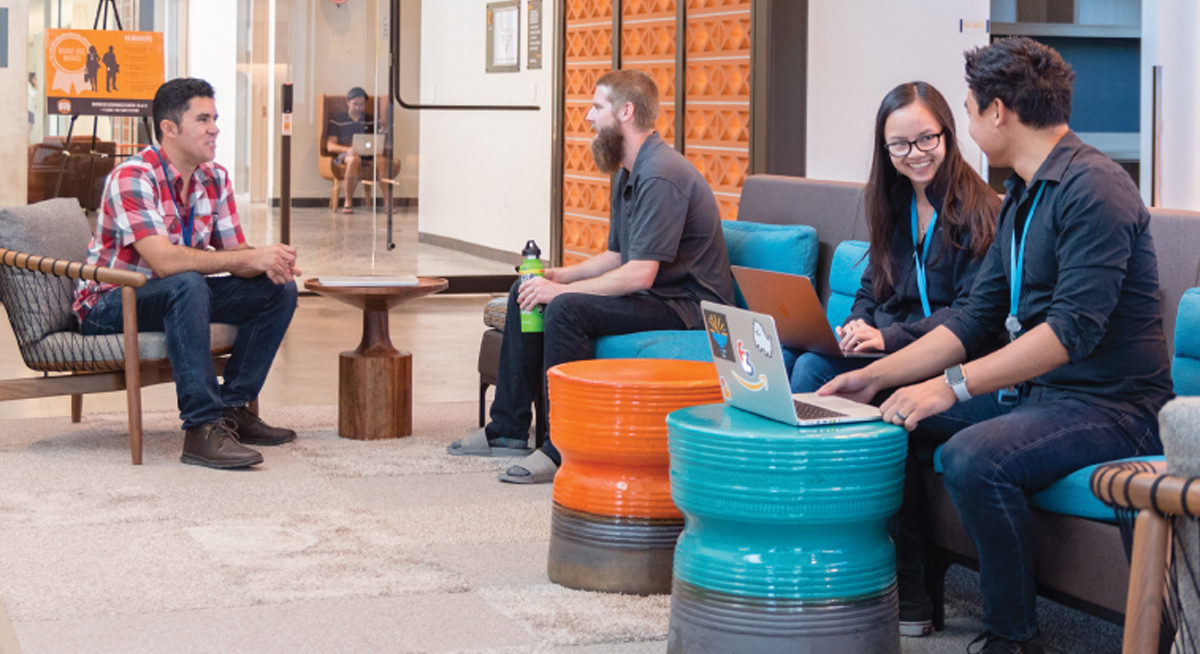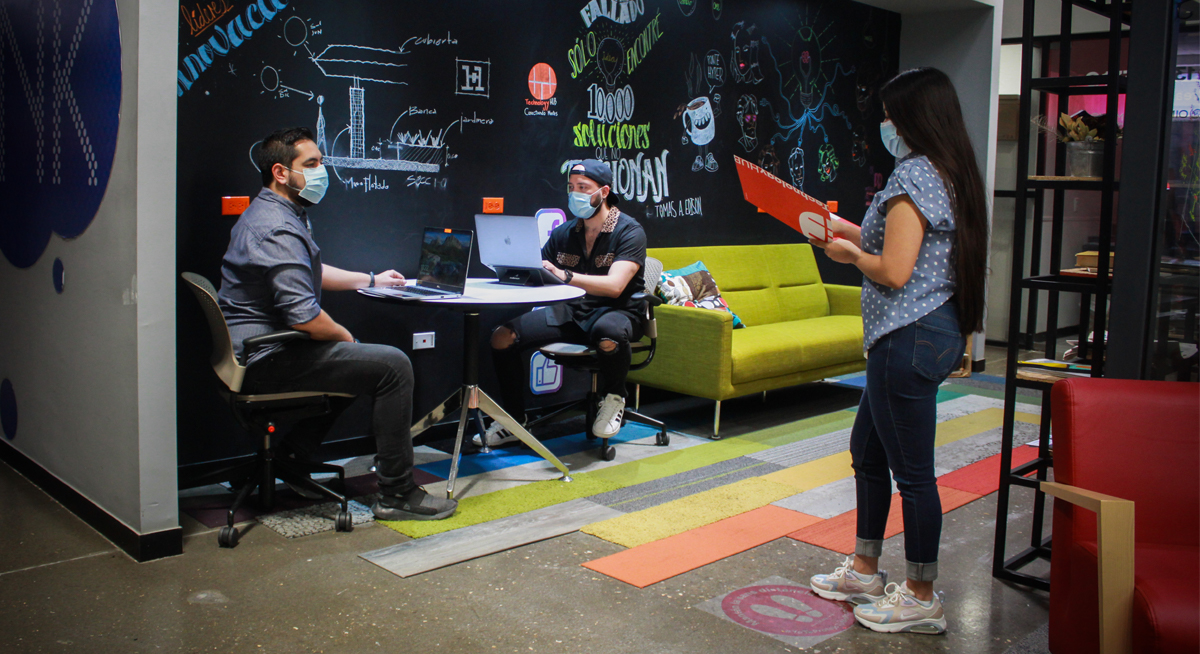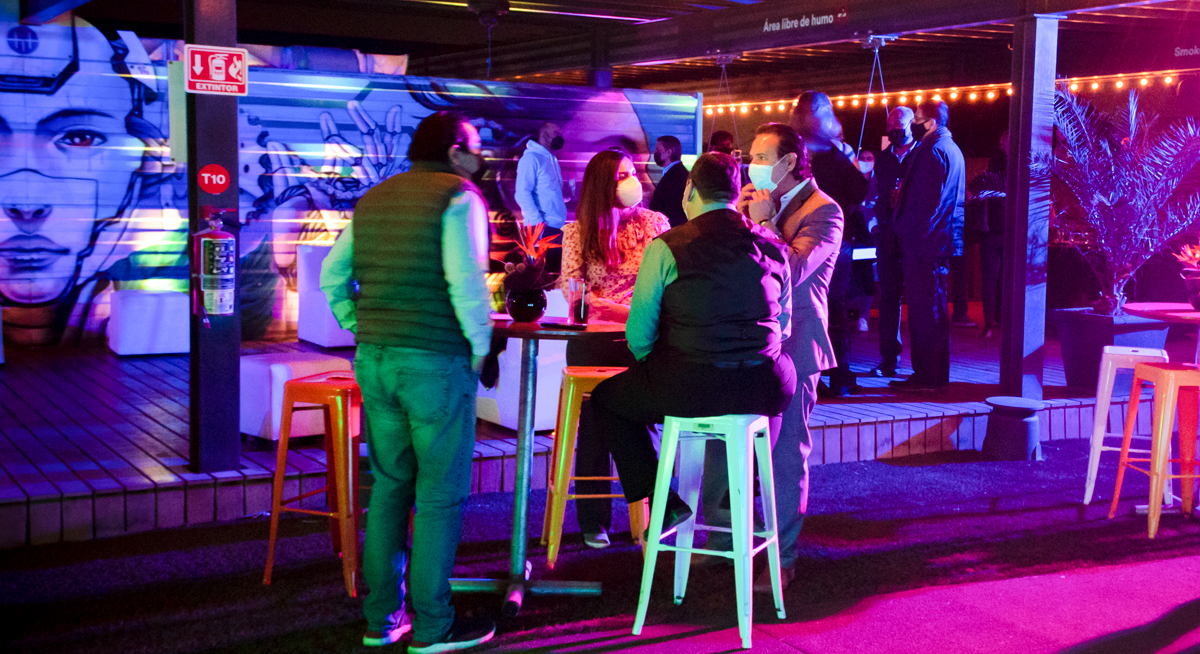"I don't know about you but I'm absolutely sick and tired of being the same person all day as I slouch around at home. I want to have different clothes, go into the office, see different people who become my lifelong friends and have a complete laugh when I'm there." Lucy Kellaway, journalist at the Financial Times.
Some people speculate that the recent pandemic caused the rent of workspaces to fall and that only company leaders want the workforce back in the office as soon as possible. However, the important thing is to consider both the leader's and the collaborator's perspectives.
Although companies like Twitter and Spotify still maintain the idea of remote working practically 100%, the tendency of many companies is to go in another direction. So, we are witnessing the return to an office-centric culture, led in large part by Amazon and, surprisingly, by employees and their need to socialize in office spaces.

In case you didn't know, Amazon recently reached out to its employees, informing them that they should return to an office-centric culture. You can read the full note about it here. Being one of the largest companies internationally, its actions influence the decisions of other companies, such as Microsoft and Google.
These two companies have followed in Amazon's footsteps, but in their own way. Google also plans to reopen its office spaces in September, around the same time as Amazon, implying that its return is also based on the availability of vaccines and the decline in positive Covid-19 cases. The difference here is that Google only expects its collaborators to be in the office at least 3 days a week.
On the other hand, Microsoft was more ambiguous, taking it one step at a time, stating that employees could work from home part of their hours, but less than 50%. So, it's unclear how long you could work from home based on your position, but still, they are expected to be in the office longer than they are at home. But why this urge to focus on the office?
Social Life at the Office
"I think we should all howl at what we're losing", says Lucy Kellaway, "I think the most important thing about the office is it gives some sort of meaning to what we do. The best way of thinking there's some point to it is having other people who are sitting all round you doing the same thing".
 Photo by: HUBmedia
Photo by: HUBmedia
Socializing helps strengthen teamwork. Sure, you can do it over the internet, with social networks or video calls, but nothing beats the face-to-face experience of meetings and networking events. Once the threat of the virus has dissipated, the face-to-face meetings will return, that includes the return to the office, because we know that connecting with others is faster and easier in person.
Yes, you can work from home, but, as Kellaway put it, we need a purpose. Getting out of bed and choosing our clothes, going to the office, meeting new people, eating with coworkers, and sharing our lives with them - all of this is part of an office-centric culture. As I wrote in a previous blog post, this lifestyle benefits small businesses and the regional economy, but it also gives us a better and healthy social life.
Therefore, no matter how much we want to stay home and no longer go out to work, the reality is that, both leaders and collaborators, we need the social interactions that foster an office space to safeguard our mental health and perform better at work.
Be part of our binational community and get a safe workspace for you and your collaborators.

